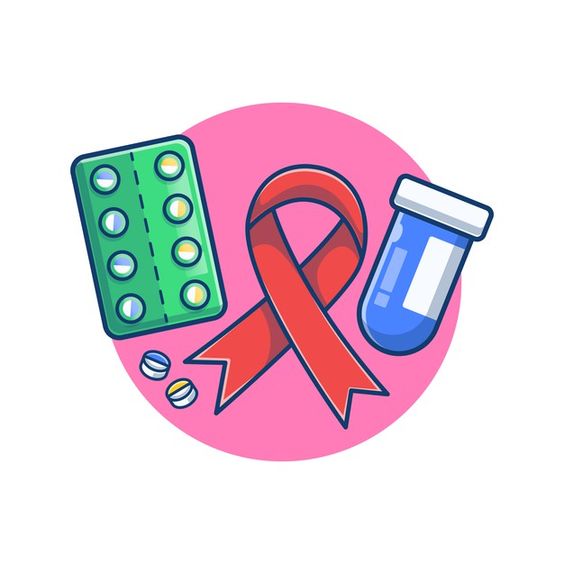Introduction:
HIV, or the human immunodeficiency virus, is a virus that attacks the body's immune system, specifically the CD4 cells (T cells), which help the body fight off infection. Over time, HIV can destroy so many of these cells that the body can't fight off infections and diseases. When this happens, HIV can lead to AIDS (acquired immunodeficiency syndrome).

AIDS is the most advanced stage of HIV infection. People with AIDS have severely damaged immune systems and are susceptible to opportunistic infections—illnesses that don't usually affect people with healthy immune systems. There is no cure for HIV, but there are effective treatments that can help people with HIV live long and healthy lives.
Symptoms of HIV:
Many people with HIV don't have any symptoms for several years. However, some people experience flu-like symptoms within 2 to 4 weeks after infection, including:
- Fever
- Chills
- Rash
- Night sweats
- Muscle aches
- Sore throat
- Swollen lymph nodes
- Mouth ulcers
These symptoms usually disappear within a few weeks. However, it's important to note that even without symptoms, a person with HIV can still transmit the virus to others.
Treatment of HIV:
Treatment for HIV is called antiretroviral therapy or ART. ART involves taking a combination of medications every day to suppress the virus and stop it from multiplying. ART can't cure HIV, but it can reduce the amount of virus in the body to very low levels. This helps to protect the immune system and prevents the progression to AIDS.
With effective ART, people with HIV can live long and healthy lives. They can also have a much lower risk of transmitting the virus to others.
Prevention of HIV:
There are several things you can do to prevent HIV infection, including:
- Practice safe sex. This means using condoms every time you have vaginal, anal, or oral sex.
- Get tested for HIV. Knowing your HIV status is important for both your health and the health of your partners.
- Use PrEP if you are at high risk for HIV. PrEP (pre-exposure prophylaxis) is a daily medication that can help prevent HIV infection.
- Avoid sharing needles. Sharing needles used to inject drugs is a major risk factor for HIV transmission.
- Talk to your doctor about HIV prevention. They can help you assess your risk and recommend the best prevention strategies for you.

.jpg)